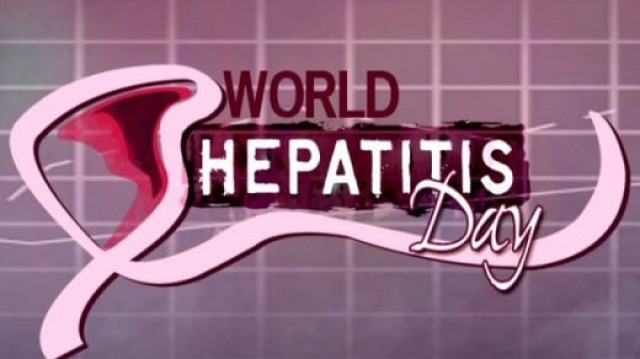Our problem is not Aids, it’s hepatitis, say experts fed up with seminars but no action
The preventable disease continues to take lives every year but we keep holding seminars.

The number of infants, children and young adults dying of preventable infectious diseases continues to rise even though the government claims to have pumped in millions of rupees in various initiatives and campaigns, promising to rid the nation of the multitude of diseases that plague it.
Hepatitis, particularly the B and C, are taking more victims into their fatal fold as experts say about nine per cent of Pakistanis are infected by these categories. Of this, six per cent are infected by hepatitis C while about three per cent are Hep B. “Our problem is not Aids but hepatitis. In fact, according to experts hepatitis B is 50 to 100 times more infectious than HIV,” says consultant gastroenterologist at the Sindh Institute of Urology and Transplantation (SIUT) Dr Zaigham Abbas. He was speaking at a seminar titled ‘Reality of Hepatitis - Today and Tomorrow’ organised by the Express Media Group on Monday.
But this isn’t just Pakistan’s problem. Worldwide, a million people die every year due to the disease, about 80% from hepatitis B and the remaining from hepatitis C. However, the high incidence in the country is also blamed on a lack of awareness.
“Hepatitis B and C are not spread through water, they are blood-borne diseases. Hepatitis A and E are water-borne illnesses,” Abbas explained. That isn’t all. The disease also spreads through simple mishandling and carelessness. While needles are not reused in many cases, the syringes are. Once the blood is sucked into the plastic syringe, it is contaminated and reusing it is equally dangerous. People also run the risk of Hepatitis B through sexual transmission with an infected individual. While wearing gloves protects the person handling the patient, in many instances they are not careful and touch contaminated surfaces and then the patient, putting them at great risk. The same applies when someone wants to get body piercings.
Associate Dean at Aga Khan University Hospital (AKUH) Professor Wasim Jafri seemed close to despair with the current state of affairs. “People need to stop these gimmickries of running numerous campaigns and programmes and be honest about the issue. Otherwise, be it 2013, 2020 or 3020 we will continue holding seminars and speaking on the same topic.”
Once a young adult has been infected with hepatitis B there is little doctors can do. The person runs an over 90% chance of liver cancer by the time they reach 25 years. Jafri strongly urged parents to get their children vaccinated as once administered, the three-dose course, available through the EPI as well, the child gains a 95% chance of being free from Hep B. “Parents need to get their child vaccinated in the first year, first day, first hour, first minute,” Jafri said, his tone filled with urgency. He then urged the government to look into seriously investing in liver transplant centres. “India began with one or two a decade ago and now they have 62 centres. We also have qualified professionals to do the same thing. The private sector is ready to jump in, but the public sector will have to take the lead and set up the first centre.”
Chief guest for the event, Sindh Health Secretary Rizwan Ahmed, appointed 18 days ago, was a true bureaucrat when he spoke, owning up to ‘the good and the bad’. However, Ahmed admitted that 70 to 80% of funds are spent on the curative aspect of the disease with the remaining on the preventative side, a ratio he intends to change. He spoke about synergising the hepatitis programme with others such as the EPI, nutrition and MNCH to ensure transparency and better use of resources.
Published in The Express Tribune, July 19th, 2011.
Correction: An earlier version of this article incorrectly stated Hepatitis C is a water-borne illness. The correction has been made.



















COMMENTS
Comments are moderated and generally will be posted if they are on-topic and not abusive.
For more information, please see our Comments FAQ